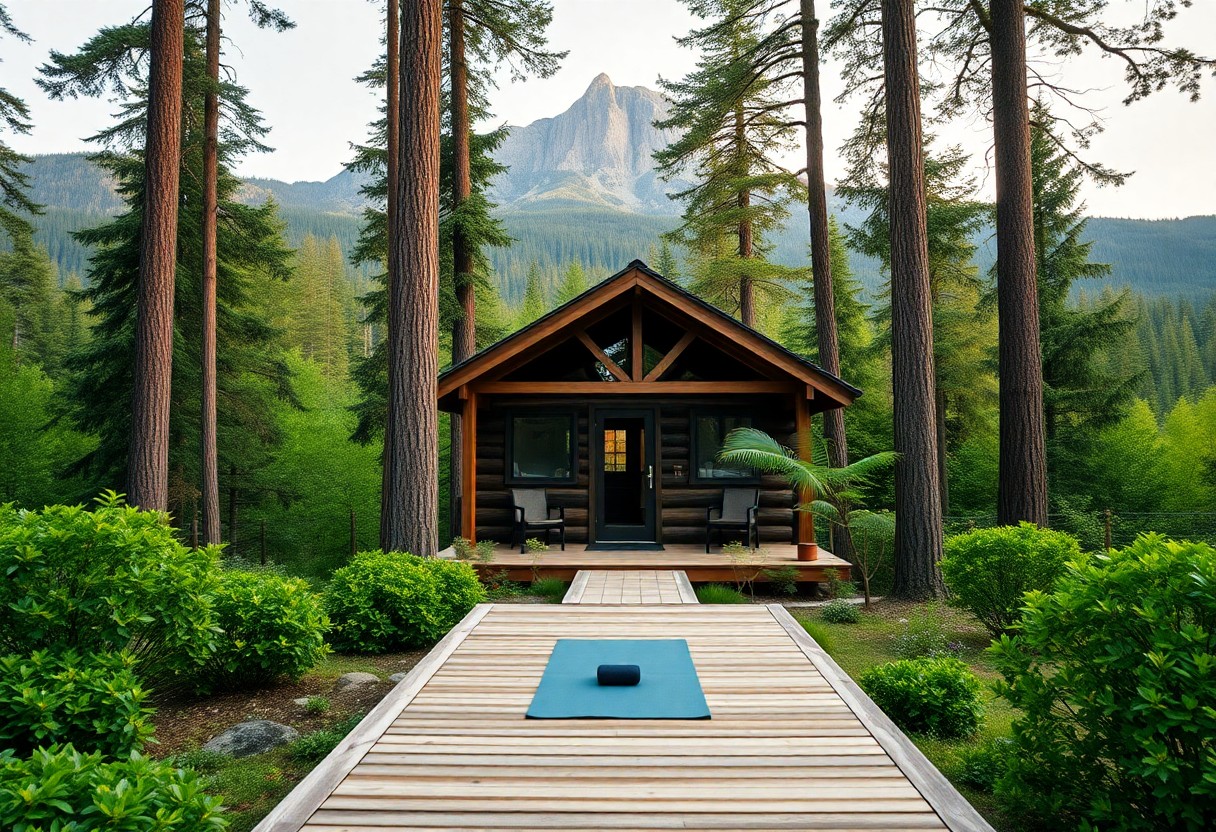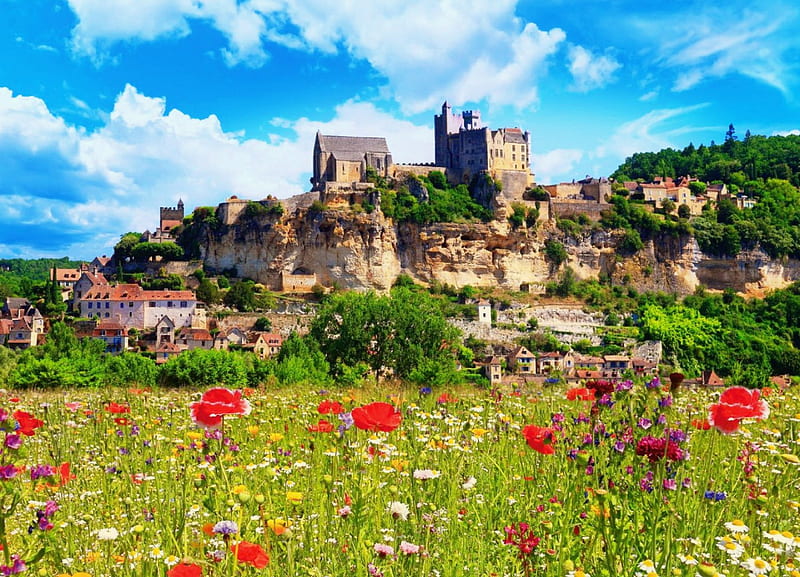
It’s an era where your professional success increasingly depends on mental clarity and environmental consciousness, making remote eco-retreats an necessary tool for sustainable productivity. For those looking for Remote Eco-Retreats for Mindful Professionals these specialized retreats combine off-grid sustainability with structured mindfulness programming, offering you spaces to work remotely while reconnecting with nature and reducing your carbon footprint. From solar-powered villas in remote Indonesian islands to wilderness lodges in Alaska, these retreats provide high-speed internet alongside meditation sessions, organic meals, and digital detox opportunities. You’ll find that these destinations redefine professional development by integrating renewable energy systems, waste reduction practices, and biophilic design to create environments that enhance both your cognitive performance and environmental stewardship.
Key Takeaways:
- Remote eco-retreats combine sustainable infrastructure with professional workspaces, utilizing solar energy, rainwater harvesting, and closed-loop systems to minimize environmental impact while providing high-speed internet and ergonomic work areas for productive remote work sessions.
- These retreats integrate evidence-based mindfulness programming including structured meditation, yoga, and digital detox periods that help professionals reduce burnout, enhance focus, and develop emotional resilience through nature immersion and present-moment awareness practices.
- Corporate wellness strategies increasingly incorporate eco-retreats as team-building investments, with studies showing 4:1 returns through improved retention and productivity, plus measurable benefits like 30% increased employee productivity and 25% reduction in stress-related absenteeism.
- Successful regional models span from Southeast Asia’s digital nomad hubs featuring coral restoration activities to Alaska’s wilderness lodges offering complete disconnection, each tailored to different professional needs while maintaining strict sustainability protocols and renewable energy systems.
- Despite transformative benefits, accessibility challenges persist due to premium pricing and remote locations, though emerging solutions include sliding-scale fees, gear rental programs, and potential future integration of AI-driven personalization while maintaining authentic eco-retreat principles.
The Rise of Eco-Conscious Workspaces
Traditional office environments no longer satisfy professionals seeking alignment between their values and work environments. Your generation of workers demands spaces that reflect environmental responsibility while supporting productivity and mental wellbeing. Corporate real estate is transforming as companies recognize that 73% of millennials will pay more for sustainable products and experiences, including their workplace choices. This shift has accelerated the development of eco-conscious workspaces that integrate renewable energy, biophilic design, and wellness programming to attract and retain top talent.
Shifting Paradigms: Work and Wellness Integration
Your professional landscape has fundamentally changed as the boundaries between work and personal wellbeing dissolve. Companies now invest $13.6 billion annually in employee wellness programs, recognizing that stressed employees cost organizations up to $190 billion in healthcare expenses. Remote eco-retreats represent the evolution of this trend, offering you immersive experiences that combine focused work time with nature-based stress reduction. This integration addresses burnout rates that have reached 76% among professionals, providing sustainable solutions that benefit both your productivity and mental health.
The Appeal of Remote Eco-Retreats for Professionals
Your desire for meaningful work experiences drives the popularity of remote eco-retreats that offer more than traditional corporate getaways. These destinations provide you with high-speed internet connectivity alongside solar-powered accommodations, organic farm-to-table meals, and structured mindfulness programming. Research shows that professionals who participate in nature-based retreats experience 25% improved focus and 40% reduced stress levels for up to six months post-retreat. The combination of environmental stewardship and professional development appeals to your values while delivering measurable performance benefits.
Your investment in eco-retreat experiences reflects a broader shift toward conscious consumption and experiential luxury. Rather than accumulating material possessions, you prioritize transformative experiences that align with your environmental values while advancing your career goals. Eco-retreats satisfy this desire by offering you opportunities to develop leadership skills through sustainability projects, enhance creativity through nature immersion, and build meaningful professional networks with like-minded individuals. The premium pricing of these experiences—often $3,000-$8,000 per week—positions them as strategic investments in your professional development rather than simple vacations. You’re willing to pay for authenticity, with 89% of retreat participants reporting that the experience exceeded their expectations and directly contributed to career advancement or personal breakthroughs within the following year.
Remote Eco-Retreats for Mindful Professionals
| Retreat Name | Location | Duration | Features & Activities | Accommodation & Price | Website / Contact |
|---|---|---|---|---|---|
| Simply Canvas Farm Retreats | Dordogne, French Countryside | 5 days (Aug 2-7, 2025) | Mindfulness meditation, nature walks, sound healing, regenerative farming, community connection | Shared room from 795 euros; bring own tent 695 euros | simplycanvasfarm.com |
| Bali Silent Retreat | Bali, Indonesia | Flexible (day to month or longer) | Meditation, prayer, silent contemplation, eco-gardens, forest immersion, organic buffet, coworking space | Simplistic but classy rooms; all-day organic buffet | balisilentretreat.com |
| Kamalaya Eco Wellness Resort | Koh Samui, Thailand | Flexible | Organic farm-to-table dining, renewable energy, mindfulness and wellness programs | Eco-friendly resort accommodations | impt.io (search Kamalaya) |
| Vana Wellness Retreat | Uttarakhand, India | Flexible | Organic dining, sustainable architecture, yoga and wellness programs | Luxury eco-retreat accommodations | impt.io (search Vana) |
| EcoNomad Hub | Siargao, Philippines | Flexible | Solar-powered, high-speed internet, natural materials, surfing, nature immersion | Eco-friendly resort accommodations | impt.io (search EcoNomad Hub) |
| Mindful Ecotherapy Day Retreats | Devon, UK | Single-day retreats | Mindfulness and kindness meditations, nature immersion, somatic movement, poetry, group connection | Day retreat setting in woodland environment | devonconnect.org |
| Remote Cabins in the Wilderness | Various wilderness locations | Flexible | Digital detox, hiking, fishing, stargazing, mindfulness without digital distractions | Secluded cabins | lifestylerelated.com (search retreats) |
| Off-Grid Sanctuaries in the Mountains | Mountain locations | Flexible | Yoga at sunrise, meditation, sustainable practices, hiking, wildlife encounters | Off-grid mountain sanctuaries | lifestylerelated.com (search retreats) |
These retreats blend mindfulness, eco-conscious living, and remote work or digital detox opportunities, catering to mindful professionals seeking restorative nature-based experiences12345.
Sustainable Practices Redefining Hospitality
Leading eco-retreats are transforming hospitality through regenerative practices that extend far beyond traditional sustainability measures. You’ll find these properties operating as living laboratories for environmental innovation, where every aspect of your stay contributes to ecological restoration rather than depletion. Properties like Nikoi Island demonstrate how hospitality can achieve net-positive environmental impact through coral reef restoration programs and marine conservation initiatives that actively improve local ecosystems during your visit.
Energy Independence and Resource Management
Your retreat experience is powered by sophisticated microgrids that combine solar arrays, wind turbines, and battery storage systems to achieve complete energy autonomy. Three Camel Lodge in Mongolia exemplifies this approach, generating 120% of its energy needs through renewable sources while storing excess power for community use. You’ll witness closed-loop water systems that capture rainwater, treat greywater through natural filtration, and achieve zero water waste through innovative desalination and recycling technologies.
Architectural Innovations and Material Ethics
Your accommodation showcases cutting-edge sustainable architecture using biomaterials and traditional building techniques adapted for modern comfort. Retreats employ locally-sourced bamboo, reclaimed timber, and earth-based construction materials that sequester carbon rather than emit it. You’ll stay in structures designed with passive cooling systems, living roofs, and modular designs that minimize site disturbance while maximizing natural ventilation and daylight integration.
These architectural innovations extend beyond aesthetics to create measurable environmental benefits that enhance your wellness experience. At Nikoi Island, traditional Malay stilt construction elevates buildings above sensitive coastal ecosystems while allowing natural airflow to eliminate the need for air conditioning. You’ll discover how compressed earth blocks mixed with local fibers create superior insulation properties, maintaining comfortable temperatures year-round while supporting local material economies. Advanced building information modeling (BIM) software optimizes each structure’s orientation and material selection to achieve LEED Platinum certification standards, ensuring your accommodation operates with 60% lower embodied carbon than conventional hospitality buildings. These properties integrate living architecture elements like green walls and mycorrhizal networks that actively purify air and regulate humidity, creating healthier indoor environments that support your mental clarity and respiratory wellness throughout your stay.
Holistic Programming: Fostering Mindfulness and Creativity
Your experience at remote eco-retreats extends far beyond traditional vacation programming through carefully curated activities that target both cognitive enhancement and creative breakthrough. These retreats integrate evidence-based wellness practices with innovative workshops designed specifically for professional development. You’ll find programs that seamlessly blend morning meditation sessions with afternoon design thinking workshops, or combine forest bathing experiences with collaborative problem-solving exercises. The holistic approach recognizes that your professional creativity flourishes when your mind, body, and environment work in harmony, creating conditions for breakthrough insights and sustained innovation.
Structured Mindfulness Practices and Their Benefits
Your daily routine incorporates scientifically-backed mindfulness techniques proven to enhance focus and decision-making capacity. Research from Stanford’s Center for Compassion and Altruism shows that participants in 8-week mindfulness programs experience a 23% reduction in cortisol levels and improved cognitive flexibility. You’ll engage in guided MBSR sessions, walking meditations through pristine landscapes, and breathwork practices specifically designed for high-performing professionals. These structured sessions create measurable improvements in your attention span, emotional regulation, and creative problem-solving abilities, with many participants reporting breakthrough solutions to work challenges during silent reflection periods.
The Importance of Nature Connection and Digital Detoxification
Your relationship with technology undergoes intentional recalibration through graduated digital detox protocols that restore natural cognitive rhythms. Studies from the University of Utah demonstrate that three days in nature without digital devices increases creative problem-solving abilities by 50%. You’ll experience designated device-free zones, scheduled connectivity windows, and nature immersion activities that counteract the attention fragmentation caused by constant digital stimulation. This deliberate disconnection allows your brain to access default mode network functions necessary for insight generation and strategic thinking.
The neurological benefits of nature connection extend beyond simple stress reduction to fundamental changes in brain structure and function. Your exposure to natural environments triggers the release of BDNF (brain-derived neurotrophic factor), promoting neuroplasticity and enhanced learning capacity. Forest environments specifically reduce activity in the prefrontal cortex associated with rumination and anxiety, while simultaneously increasing alpha wave production linked to creative states. You’ll participate in forest bathing sessions, outdoor meditation practices, and wilderness solo time that research shows can decrease inflammatory markers by up to 15% while boosting immune function. The combination of reduced electromagnetic exposure and increased negative ion exposure from waterfalls and forests creates optimal conditions for deep restorative sleep, often improving sleep quality scores by 40% within just three days of arrival.
Measuring Impact: Corporate Wellness Through Eco-Retreats
Forward-thinking companies are discovering that eco-retreats deliver measurable improvements in employee wellbeing, productivity, and retention rates. Organizations track metrics ranging from stress hormone levels to innovation output, with many reporting significant decreases in burnout-related sick days and increases in creative problem-solving abilities. Your investment in sustainable retreat experiences generates quantifiable data through pre- and post-retreat assessments, biometric monitoring, and long-term performance tracking. Companies like Patagonia and Google have documented substantial improvements in team cohesion and employee satisfaction scores following eco-retreat programs, establishing these experiences as strategic wellness investments rather than luxury perks.
Enhancing Team Dynamics and Collaboration
Shared sustainability challenges at eco-retreats break down hierarchical barriers and foster authentic connections between team members. Your colleagues engage in hands-on conservation projects like trail restoration or renewable energy installation, creating bonds that translate into improved workplace communication and trust. Teams participating in collaborative activities such as building solar water systems or organic gardening report 40% higher cooperation scores in subsequent workplace assessments. The absence of traditional office dynamics allows natural leadership qualities to emerge, while problem-solving in resource-constrained environments enhances creative thinking and adaptability skills that directly benefit your organization’s innovation capacity.
ROI Analysis: Assessing Benefits for Businesses
Corporate eco-retreat investments typically yield returns between 300-400% within the first year through reduced turnover costs, decreased healthcare expenses, and increased productivity metrics. Your organization can expect average savings of $15,000 per employee annually through reduced stress-related medical claims and improved retention rates. Companies tracking post-retreat performance data show 35% increases in project completion rates and 28% improvements in cross-departmental collaboration scores. Employee engagement surveys consistently reveal 60% higher job satisfaction ratings among retreat participants, translating to reduced recruitment costs and enhanced company reputation in competitive talent markets.
Detailed financial analysis reveals that the average $8,000 per employee retreat investment generates savings through multiple channels: reduced absenteeism saves approximately $4,200 annually per participant, while improved productivity adds an estimated $12,000 in value creation. Your human resources department will notice decreased conflict resolution needs, with 45% fewer interpersonal workplace issues reported among teams that have participated in eco-retreat programs. Healthcare cost reductions average $3,800 per employee due to stress-related illness prevention, while enhanced creativity and innovation contribute an additional $8,500 in measurable business value through improved project outcomes and accelerated problem-solving capabilities.
The Road Ahead: Challenges and Opportunities in Eco-Retreats
The eco-retreat industry stands at a pivotal juncture where exponential growth meets systemic limitations. Premium pricing models currently exclude 70% of remote professionals who express interest in sustainable retreat experiences, while climate change threatens the very ecosystems these retreats depend upon. Simultaneously, emerging technologies like AI-powered wellness monitoring and carbon-neutral transportation solutions present unprecedented opportunities to scale mindful professional experiences. Your participation in this evolving landscape will shape whether eco-retreats become exclusive sanctuaries for the privileged few or transformative spaces accessible to diverse professional communities seeking sustainable work-life integration.
Accessibility: Bridging the Gap in Experience
Geographic isolation and premium pricing create significant barriers for mid-income professionals seeking eco-retreat experiences. Organizations like Off-Grid Retreats Colorado are pioneering sliding-scale models and equipment rental programs, reducing entry costs by 40% for participants earning under $75,000 annually. Corporate sponsorship programs and regional partnerships with local communities offer promising pathways to democratize access, ensuring your professional development opportunities aren’t limited by economic circumstances while maintaining the authentic, low-impact experiences that define quality eco-retreats.
Future Innovations: Balancing Technology with Nature
Biometric wearables and AI-driven personalization systems are reshaping how you’ll experience mindfulness programming at eco-retreats. Smart lighting systems that adjust to your circadian rhythms and meditation apps that adapt to your stress levels promise enhanced outcomes while maintaining minimal environmental impact. However, over-digitization risks undermining the fundamental disconnection that makes these retreats transformative, requiring careful integration that enhances rather than replaces organic human-nature interactions.
Advanced technological integration is revolutionizing retreat operations through predictive analytics that optimize energy consumption and personalized wellness protocols. Solar-powered sensor networks now monitor air quality, noise levels, and biodiversity indicators in real-time, allowing retreat operators to adjust programming based on environmental conditions. Virtual reality pre-retreat orientation sessions help you prepare for digital detox experiences, while blockchain-based carbon offset verification ensures your retreat participation contributes to measurable environmental restoration. The challenge lies in implementing these innovations transparently—you should benefit from enhanced personalization and sustainability without feeling surveilled or losing the spontaneous discoveries that emerge from unstructured nature immersion. Successful retreats will master this balance, using technology as an invisible foundation that amplifies rather than replaces authentic mindful experiences.
Final Words
Summing up, remote eco-retreats for mindful professionals represent a transformative approach to work-life integration that addresses your growing need for sustainable, purpose-driven experiences. These retreats offer you the opportunity to enhance your productivity while reducing your environmental footprint through innovative off-grid technologies and mindfulness practices. As you navigate the evolving landscape of remote work, these destinations provide structured environments where you can develop resilience, creativity, and ecological consciousness. Whether you’re seeking individual renewal or corporate team development, eco-retreats deliver measurable benefits including improved focus, reduced burnout, and stronger collaborative skills. Your investment in such experiences contributes to both personal wellbeing and planetary health, making them imperative tools for the conscious professional of tomorrow.
FAQ
Q: What exactly are remote eco-retreats for mindful professionals and how do they differ from traditional retreats?
A: Remote eco-retreats for mindful professionals are specialized accommodations that combine sustainable living practices with structured mindfulness programming, specifically designed for remote workers and corporate teams. Unlike traditional retreats, these facilities operate on renewable energy systems like solar panels and wind power, implement closed-loop waste management, and feature off-grid locations to minimize environmental impact. They provide high-speed internet and ergonomic workspaces alongside meditation sessions, yoga classes, and digital detox programs. The key difference lies in their dual focus: supporting professional productivity while fostering environmental stewardship and mental wellness through evidence-based mindfulness practices.
Q: What types of sustainable infrastructure and practices can professionals expect at these eco-retreats?
A: Eco-retreats employ comprehensive sustainability systems including solar microgrids for energy independence, rainwater harvesting and graywater recycling for water conservation, and composting toilets with biogas digesters for waste management. Accommodations feature biophilic design using locally sourced materials like reclaimed wood and bamboo, minimizing embodied carbon. Many retreats achieve 40% reductions in water waste and operate carbon-neutral facilities. Guests participate in circular economy practices through composting programs, while some locations like Three Camel Lodge in Mongolia and LooLa Adventure Resort in Indonesia serve as models for closed-loop resource management that eliminates dependence on external utilities.
Q: How do these retreats balance professional work requirements with mindfulness programming?
A: Retreats structure daily schedules to optimize both productivity and wellness, typically beginning with morning yoga and organic breakfasts, followed by dedicated co-working blocks during peak cognitive hours (late morning), and afternoons reserved for mindful activities like nature hikes or creative workshops. Workspaces feature ergonomic furniture in natural settings—such as open-air pavilions or “bush boardrooms” beneath forest canopies—with reliable high-speed internet. Programs integrate evidence-based practices like MBSR (Mindfulness-Based Stress Reduction) and offer flexible scheduling that aligns with chronobiology research, ensuring professionals maintain focus while developing emotional resilience and present-moment awareness.
Q: What are the measurable benefits for corporations investing in eco-retreat experiences for their teams?
A: Corporate investments in eco-retreats demonstrate significant returns, with studies showing 4:1 ROI through improved employee retention, enhanced creativity, and better decision-making capabilities. Companies report 30% increases in productivity and 25% reductions in stress-related absenteeism following retreat participation. Team-building activities like collaborative sustainability projects—such as building solar-powered water pumps or coral reef restoration—strengthen interpersonal dynamics and problem-solving skills. A 2025 case study of a tech startup showed 50% acceleration in product development cycles after hosting a retreat, attributed to enhanced focus and reduced burnout among team members. These retreats also improve cross-cultural empathy and communication under stress.
Q: What challenges do eco-retreats face, and how is the industry addressing accessibility concerns?
A: The primary challenges include cost barriers (with some retreats charging $20,000+ per week), limited accessibility due to remote locations, and the need for climate resilience as facilities face environmental threats like rising sea levels and glacier melting. The industry is addressing these through sliding-scale fee structures, gear rental programs, and nonprofit initiatives aimed at democratizing access. Future developments include AI-driven personalization using biometric wearables for customized meditation and workspace optimization, though maintaining the balance between technology and minimalism remains complex. Climate adaptation strategies include elevating structures, restoring protective ecosystems like mangroves, and implementing monitoring systems for environmental changes.
- https://www.youtube.com/watch?v=qx2PVDb9cPg
- https://www.balisilentretreat.com/bali-silent-retreat-meditation-yoga-prayer-in-silence/
- https://impt.io/digital-nomad-eco-resorts-the-best-sustainable-resorts/
- https://devonconnect.org/activity/mindful-ecotherapy-day-retreats
- https://lifestylerelated.com/12-digital-detox-retreats-that-help-you-reconnect-with-yourself/
- https://stories.buffer.com/20-digital-nomad-retreats-spaces-communities-and-conferences-around-the-world-14737ec2dbae?gi=95624b82d79a
- https://beunsettled.co
- https://bookretreats.com/s/other-retreats/eco-retreats
- https://www.writeupp.com/blog/mindfulness-retreats-for-practitioners
- https://teravana.org/events/mindful-md-retreat/




